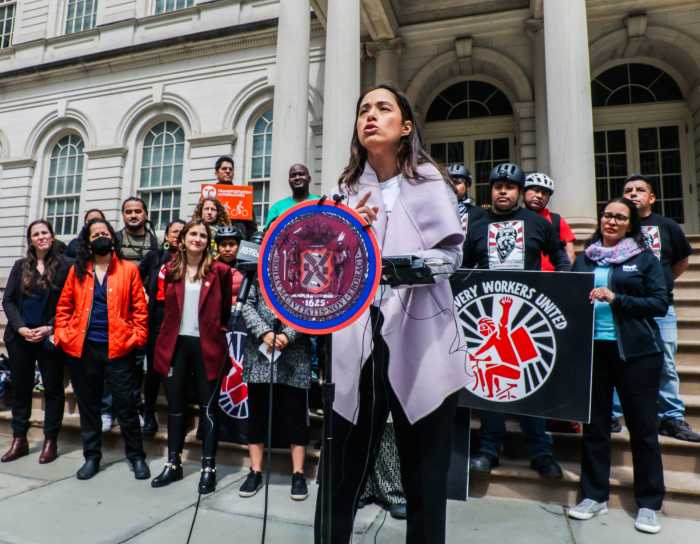BY ALINE REYNOLDS | In a sweeping announcement made late Friday afternoon, the federal government proposed adding 50 forms of cancer to the list of treatable illnesses covered by the James L. Zadroga 9/11 Health & Compensation Act.
Cancer of the colon, liver and thyroid as well as respiratory forms of the disease are among the host of cancers that are up for inclusion, according to a document the Zadroga Act’s administrator Dr. John Howard has released. Howard’s decision was largely influenced by the recommendations made by the Scientific/Technical Advisory Committee (S.T.A.C.), a group of health experts and Downtown advocates that advised treatment of just 30 types of cancer to be federally funded.
The proposal, if enacted, would provide nationally subsidized coverage to cancer-stricken Downtown residents, workers and students as well as first responders from outside the area who inhaled Ground Zero toxins.
Howard justified his determination in a June 8 letter addressed to U.S. Congressman Jerrold Nadler. “We recognize the serious impact cancer has had on responders, survivors and their loved ones,” he wrote. “I accepted the S.T.A.C.’s approaches in determining that certain types of cancer should be added to the list.”
In an initial review last July, Howard had vetoed adding cancer to the Zadroga Act, citing insufficient medical evidence to do so.
“At the time, in the absence of any studies linking 9/11 exposures and cancer, I determined that insufficient evidence existed of a link between 9/11 exposures and types of cancer to include any type of cancer as a covered condition,” he said in the letter.
Nadler along with U.S. Representatives Carolyn Maloney and Peter King, the bill’s sponsors in the House of Representatives, said they were “thrilled” by the news.
“It further strengthens our legislation… and helps pave the way for expanding the scope of available medical care and compensation for those sickened by the toxins at Ground Zero,” the politicians said in a statement. “As we have all seen with our own eyes again and again, cancer incidence among responders and survivors is a tragic fact, and we must continue to do everything we can to provide the help that those who are sick need and deserve.”
Howard, however, cautioned that the announcement is “a proposal only” and is subject to a 30-day comment period that begins next Wednesday. “Once public comments are received,” he wrote, “I will address them as appropriate before issuing a final ruling.”




































